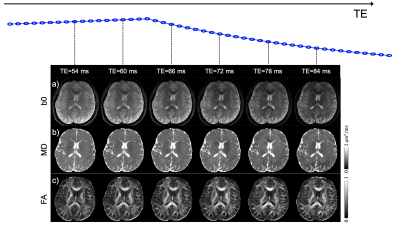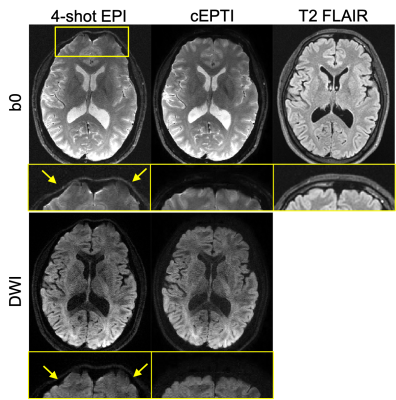Erpeng Dai1, Philip K Lee1,2, Zijing Dong3,4, Fanrui Fu1, Kawin Setsompop1,2, and Jennifer A McNab1
1Department of Radiology, Stanford University, Stanford, CA, United States, 2Department of Electrical Engineering, Stanford University, Stanford, CA, United States, 3Athinoula A. Martinos Center for Biomedical Imaging, Massachusetts General Hospital, Charlestown, MA, United States, 4Department of Electrical Engineering and Computer Science, MIT, Cambridge, MA, United States
1Department of Radiology, Stanford University, Stanford, CA, United States, 2Department of Electrical Engineering, Stanford University, Stanford, CA, United States, 3Athinoula A. Martinos Center for Biomedical Imaging, Massachusetts General Hospital, Charlestown, MA, United States, 4Department of Electrical Engineering and Computer Science, MIT, Cambridge, MA, United States
A self-navigated Cartesian-based EPTI acquisition (cEPTI) and the corresponding reconstruction algorithm have been developed. High-quality distortion-free diffusion and multi-contrast images can be acquired with the proposed cEPTI.


